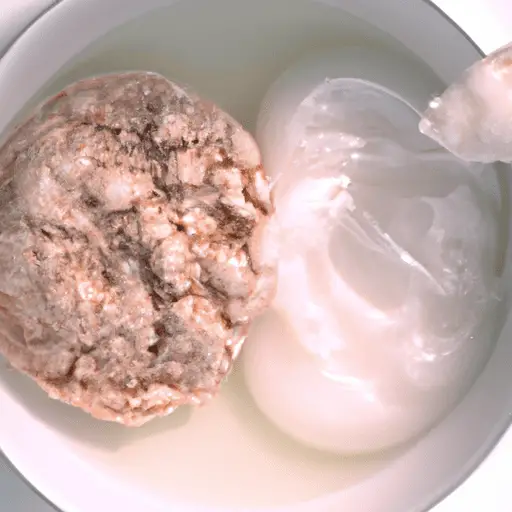-
Table of Contents
- The Exfoliation Myth: Understanding the Proper Use of Exfoliants
- Key Takeaways
- Introduction: Unveiling the Truth about Exfoliation
- Understanding Exfoliation: Physical vs. Chemical
- Debunking Exfoliation Myths
- FAQ Section: Common Questions about Exfoliation
- 1. How often should I exfoliate?
- 2. Can I use both physical and chemical exfoliants?
- 3. Can exfoliation help with acne?
- 4. Can I exfoliate if I have sensitive skin?
- 5. Can over-exfoliation cause skin damage?
- Conclusion: The Truth about Exfoliation
- Further Analysis
- Key Takeaways Revisited
The Exfoliation Myth: Understanding the Proper Use of Exfoliants

[youtubomatic_search]
Key Takeaways
- Exfoliation is a crucial part of skincare, but it is often misunderstood and misused.
- There are two types of exfoliation: physical and chemical, each with its own benefits and drawbacks.
- Over-exfoliation can lead to skin damage and irritation.
- Understanding your skin type is key to choosing the right exfoliant and frequency of use.
- Several myths surrounding exfoliation need to be debunked for a better understanding of this skincare practice.
Introduction: Unveiling the Truth about Exfoliation
Exfoliation, the process of removing dead skin cells from the surface of your skin, is a common practice in skincare routines. However, there are many misconceptions about this process that can lead to misuse and potential skin damage. This article aims to debunk these myths and provide a comprehensive understanding of the proper use of exfoliants.
Understanding Exfoliation: Physical vs. Chemical
There are two main types of exfoliation: physical and chemical. Physical exfoliation involves using a scrub, brush, or other abrasive materials to physically remove dead skin cells. On the other hand, chemical exfoliation uses acids or enzymes to dissolve these cells.
While physical exfoliants can provide immediate results, they can also cause micro-tears in the skin if used too aggressively, leading to irritation and sensitivity. Chemical exfoliants, particularly those containing AHAs and BHAs, can penetrate deeper into the skin, promoting cell turnover and improving skin texture and tone. However, they can also cause irritation if used too frequently or in high concentrations.
Debunking Exfoliation Myths
Several myths surrounding exfoliation need to be debunked to ensure proper skincare practices. One common myth is that exfoliation can help remove acne. While it can help prevent acne by keeping pores clear, over-exfoliation can actually exacerbate acne by irritating the skin and causing inflammation.
Another myth is that you should exfoliate daily. The frequency of exfoliation should depend on your skin type and the type of exfoliant used. Over-exfoliation can strip the skin of its natural oils, leading to dryness, sensitivity, and even premature aging.
FAQ Section: Common Questions about Exfoliation
1. How often should I exfoliate?
The frequency of exfoliation depends on your skin type and the type of exfoliant used. Generally, it is recommended to exfoliate 1-3 times per week.
2. Can I use both physical and chemical exfoliants?
Yes, but not at the same time. It is recommended to alternate between the two to avoid over-exfoliation.
3. Can exfoliation help with acne?
While exfoliation can help prevent acne by keeping pores clear, over-exfoliation can actually exacerbate acne by irritating the skin and causing inflammation.
4. Can I exfoliate if I have sensitive skin?
Yes, but it is recommended to use a gentle exfoliant and limit the frequency of use to avoid irritation.
5. Can over-exfoliation cause skin damage?
Yes, over-exfoliation can strip the skin of its natural oils, leading to dryness, sensitivity, and even premature aging.
Conclusion: The Truth about Exfoliation
Exfoliation is a crucial part of skincare, but it is often misunderstood and misused. By debunking common myths and understanding the difference between physical and chemical exfoliation, we can ensure that we are using exfoliants properly and effectively. Remember, the key to successful exfoliation is understanding your skin type and choosing the right exfoliant and frequency of use.
[youtubomatic_search]
Further Analysis
Understanding the proper use of exfoliants is crucial for maintaining healthy skin. By debunking common myths and providing clear, concise answers to frequently asked questions, this article aims to provide a comprehensive guide to exfoliation. Remember, the key to successful exfoliation is understanding your skin type and choosing the right exfoliant and frequency of use.
Key Takeaways Revisited
- Exfoliation is a crucial part of skincare, but it is often misunderstood and misused.
- There are two types of exfoliation: physical and chemical, each with its own benefits and drawbacks.
- Over-exfoliation can lead to skin damage and irritation.
- Understanding your skin type is key to choosing the right exfoliant and frequency of use.
- Several myths surrounding exfoliation need to be debunked for a better understanding of this skincare practice.

Leave a Reply